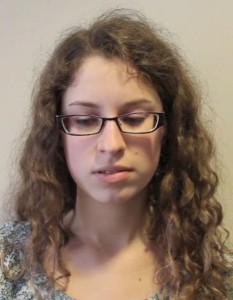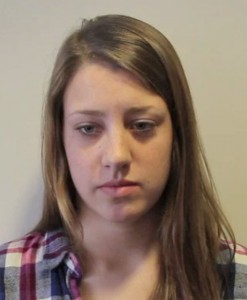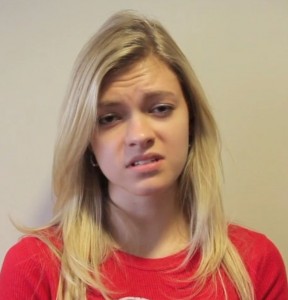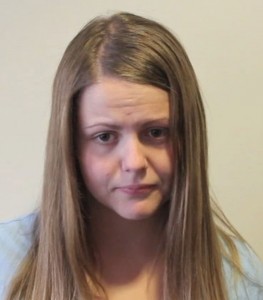It can be very difficult to distinguish sadness, shame, embarrassment, or guilt, and we’re not even going to try. (The feelings often co-occur, of course.) If someone shows the signs described here, your safest bet is to assume that they’re sad, and to be sympathetic. If you have asked someone a personal question, and they respond with these signs, they are likely to be embarrassed, so back off.
Vocal Characteristics: Someone who is sad will speak slowly and softly, with a low pitch, downward intonation, irregular pauses and slurred enunciation.
Body Language: The eyes or head will generally be lowered (this is sometimes referred to as the head “hanging”), and the person will often slouch or hunch over, as if folding in on themselves. They may physically move away from people spoken to.
Facial Expression: The facial expression of sadness includes drooping eyelids and drooping mouth. Note that whereas the squint involved in a “happy face” creates “laugh lines” by the eyes, the droopy eyes involved in the “sad face” are the result of a lack of muscle tension. With the drooping mouth, the lips, cheeks and jaw all seem to sag, as opposed to lips being purposefully lowered in a frown, although of course with more intense sadness, a person may frown, pout or compress the lips, and/or cry. Crying in public is, of course, stigmatized, especially for men.
It is also quite common for a sad person to curve the lips upward in a smile (as this is typically a sign of submission), but the sad smile can be distinguished from a happy one, as the cheeks and jaw will still droop and the lips may quiver, as if the person is having physical trouble maintaining the smile.
Note that pouting (pushing the lower lips out) is typically associated with young children’s displays of sadness and frustration. While an adult may unconsciously begin to pout when experiencing these negative emotions, most will quickly “correct” the pout, to express the feelings more appropriately. If an adult maintains a pout, they’re using it ironically. It does generally indicate that they’re upset about something, but they’re trying to make light of it, laughing at themselves – essentially saying, “look at me, I’m acting like a kid who’s upset.”
The words tell us only that there’s no school today, but the way in which she speaks tells us that she’s sad about this. Notice the quiet voice, the drooping mouth, and how her eyes look down until the end of her utterance.





